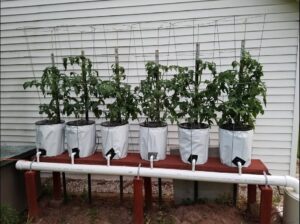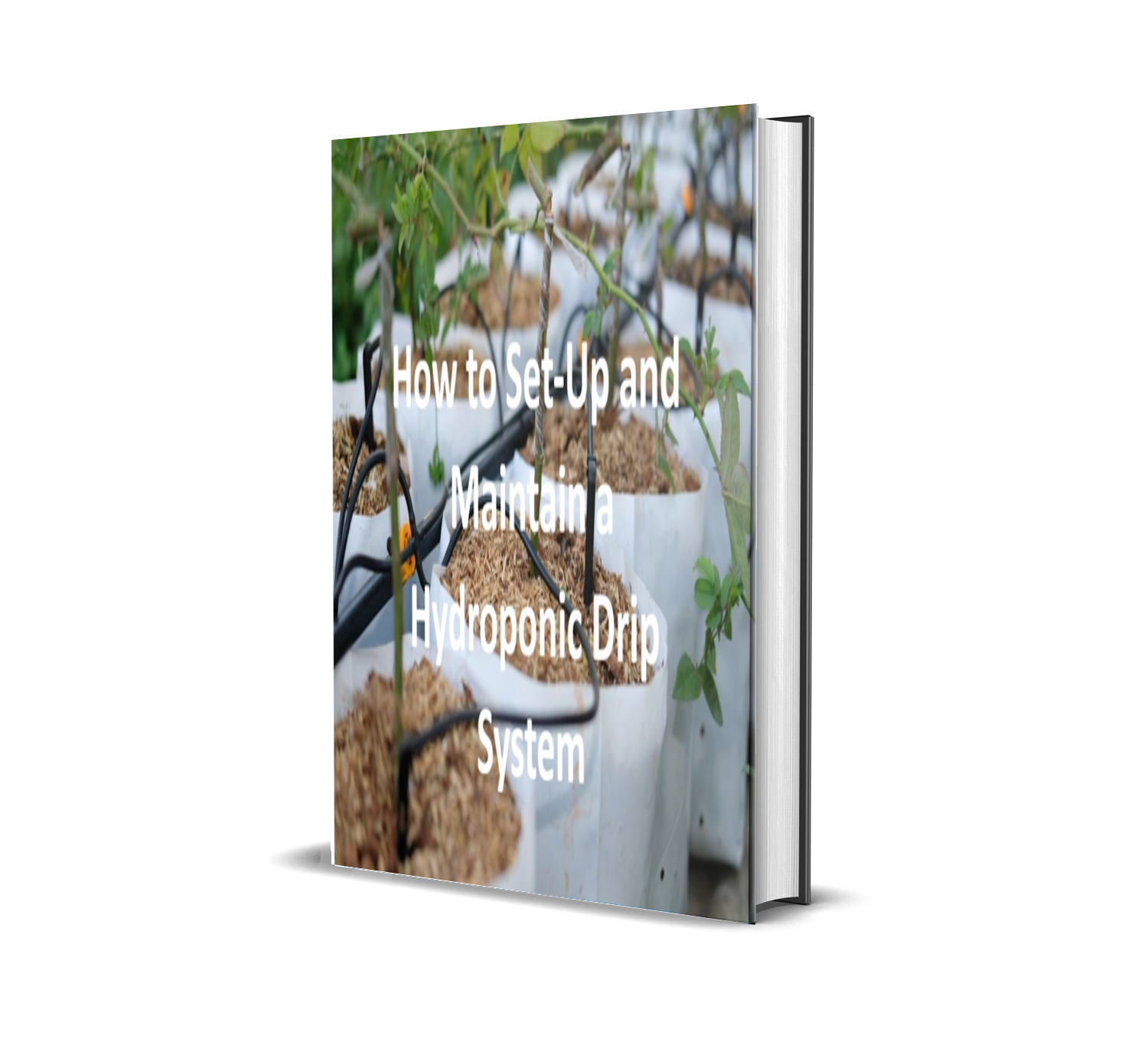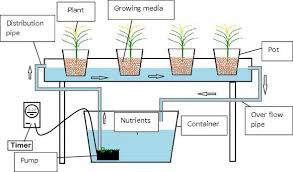Sale!
How to Set Up and Maintain a Hydroponic Drip System
Original price was: $19.95.$0.00Current price is: $0.00.
— Free Download —
Description
How to Set-Up and Maintain a Hydroponic Drip System
 A hydroponic drip system is a type of hydroponic system that delivers nutrient solution directly to the roots of plants through a network of tubes and emitters. This method of cultivation offers several advantages over traditional soil-based gardening, including:
A hydroponic drip system is a type of hydroponic system that delivers nutrient solution directly to the roots of plants through a network of tubes and emitters. This method of cultivation offers several advantages over traditional soil-based gardening, including:
- Water Efficiency: Drip systems minimize water usage by delivering it directly to the roots, reducing evaporation.
- Nutrient Control: Precise control over nutrient delivery ensures optimal plant growth and health.
- Space Efficiency: Plants can be grown closer together, maximizing space utilization.
- Cleanliness: Reduced risk of soil-borne pests and diseases.
- Faster Growth: With consistent nutrient delivery, plants often grow faster and produce higher yields.
How a Hydroponic Drip System Works
- Nutrient Solution Reservoir: A container that holds the nutrient solution.
- Pump: Pumps the nutrient solution from the reservoir to the plants.
- Tubing: Delivers the nutrient solution to the plants.
- Emitters: Small devices that release the nutrient solution slowly and directly onto the plant roots.
Setting Up a Hydroponic Drip System
- Choose Your System:
- Ebb and Flow: Nutrient solution floods the grow bed and then drains away, simulating a tidal cycle.
- NFT (Nutrient Film Technique): A thin film of nutrient solution flows continuously over the plant roots.
- Aeroponics: Plant roots are suspended in the air and misted with nutrient solution.
- Prepare Your Grow Medium:
- Inert Media: Materials like clay pebbles, rockwool, or coconut coir.
- Plant Supports: Net pots or other supports to hold the plants in place.
- Assemble the System:
- Connect the tubing to the pump and emitters.
- Place the plants in the grow medium and position them under the emitters.
- Fill the reservoir with nutrient solution.
- Monitor and Adjust:
- Regularly monitor the pH and EC (electrical conductivity) of the nutrient solution.
- Adjust the nutrient solution as needed to maintain optimal levels.
- Clean the system regularly to prevent algae growth and clogging.
Common Challenges and Solutions
- Clogged Emitters: Regularly clean emitters to ensure proper water flow.
- Nutrient Lockout: Monitor pH and EC levels to prevent nutrient deficiencies or toxicities.
- Root Rot: Ensure proper drainage and avoid overwatering.
- Algae Growth: Clean the reservoir and tubing regularly and consider using algae inhibitors.
By carefully planning and maintaining your hydroponic drip system, you can grow healthy and productive plants in a controlled environment.
You must be logged in to post a review.







Reviews
There are no reviews yet.